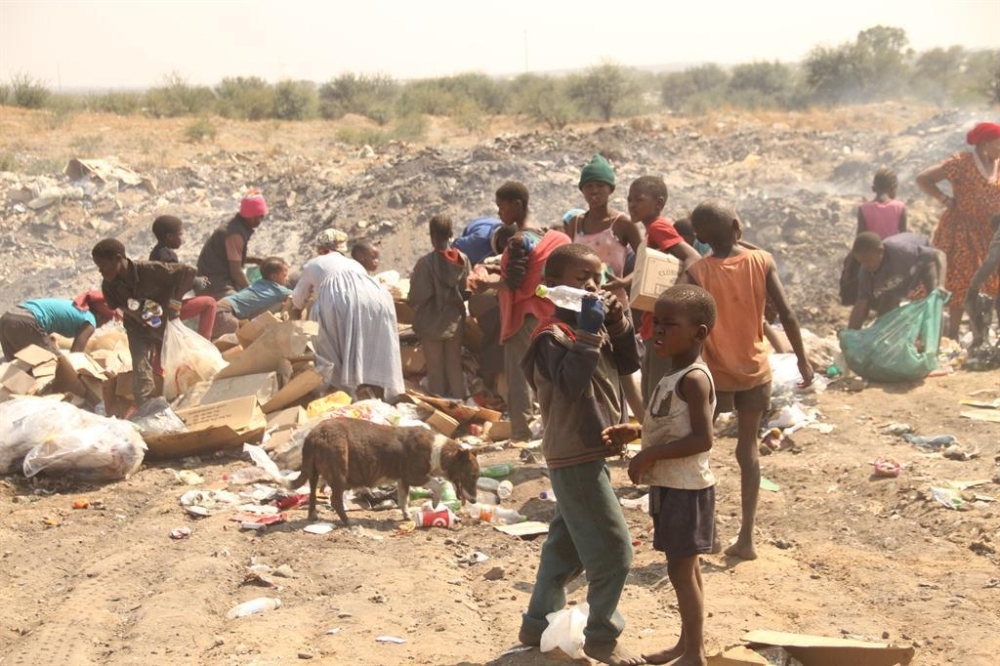High food prices to worsen food insecurity
Food availability and accessibility continue to deteriorate as a result of high food prices and long-term drought effects. This
suggests the need for Namibia to embark on climate-resilient farming practices to increase local food production.
According to Agribank’s Market Watch report for the month of May, the prevailing drought, high energy prices and Covid-19 pandemic have worsened the availability and accessibility of food in Namibia.
Nearly one million people across the country experienced food insecurity by December last year, it said, based on the integrated food security phase classification.
Agribank said the outlook for global acute food insecurity in 2022 is expected to deteriorate further, relative to 2021.
“In particular, the unfolding war in Ukraine is likely to exacerbate the already severe acute food insecurity forecasts for 2022, given that the repercussions of the war on global food, energy and fertiliser prices and supplies have not yet been factored into most country-level projections.”
It said global soft commodity prices have been the highest since 2008, with the situation worsened by the Russian-Ukrainian disputes. And Namibia is not far off - in April, annual inflation spiked to 5.6% from 3.9% recorded the previous year.
Inflation
Food prices averaged at 5.5% for the first four months of the year. The price increment was triggered by shortages of oil from Ukraine and the rise in other food sub-categories, reducing people’s purchasing power and access to food.
Meanwhile, high unemployment aggravates poverty levels and food insecurity.
Inflation currently stands at 5.9% as of April from 4.7% in March, pushing up the prices of the consumer basket, Agribank said.
“This spike continues to be driven by the price of oils and fats that increased to 23.4% in April from 15.6% the previous month.”
Sugar inflation significantly jumped to 6.9% in April from 0.5% in the prior year, while prices for bread and cereals have doubled since 2021, recording inflation of 5.9% in April from 2.8% in the same period last year.
Hot beverage inflation also grew to 6.7% in April, from -0.5% in 2021.
suggests the need for Namibia to embark on climate-resilient farming practices to increase local food production.
According to Agribank’s Market Watch report for the month of May, the prevailing drought, high energy prices and Covid-19 pandemic have worsened the availability and accessibility of food in Namibia.
Nearly one million people across the country experienced food insecurity by December last year, it said, based on the integrated food security phase classification.
Agribank said the outlook for global acute food insecurity in 2022 is expected to deteriorate further, relative to 2021.
“In particular, the unfolding war in Ukraine is likely to exacerbate the already severe acute food insecurity forecasts for 2022, given that the repercussions of the war on global food, energy and fertiliser prices and supplies have not yet been factored into most country-level projections.”
It said global soft commodity prices have been the highest since 2008, with the situation worsened by the Russian-Ukrainian disputes. And Namibia is not far off - in April, annual inflation spiked to 5.6% from 3.9% recorded the previous year.
Inflation
Food prices averaged at 5.5% for the first four months of the year. The price increment was triggered by shortages of oil from Ukraine and the rise in other food sub-categories, reducing people’s purchasing power and access to food.
Meanwhile, high unemployment aggravates poverty levels and food insecurity.
Inflation currently stands at 5.9% as of April from 4.7% in March, pushing up the prices of the consumer basket, Agribank said.
“This spike continues to be driven by the price of oils and fats that increased to 23.4% in April from 15.6% the previous month.”
Sugar inflation significantly jumped to 6.9% in April from 0.5% in the prior year, while prices for bread and cereals have doubled since 2021, recording inflation of 5.9% in April from 2.8% in the same period last year.
Hot beverage inflation also grew to 6.7% in April, from -0.5% in 2021.





Comments
Namibian Sun
No comments have been left on this article